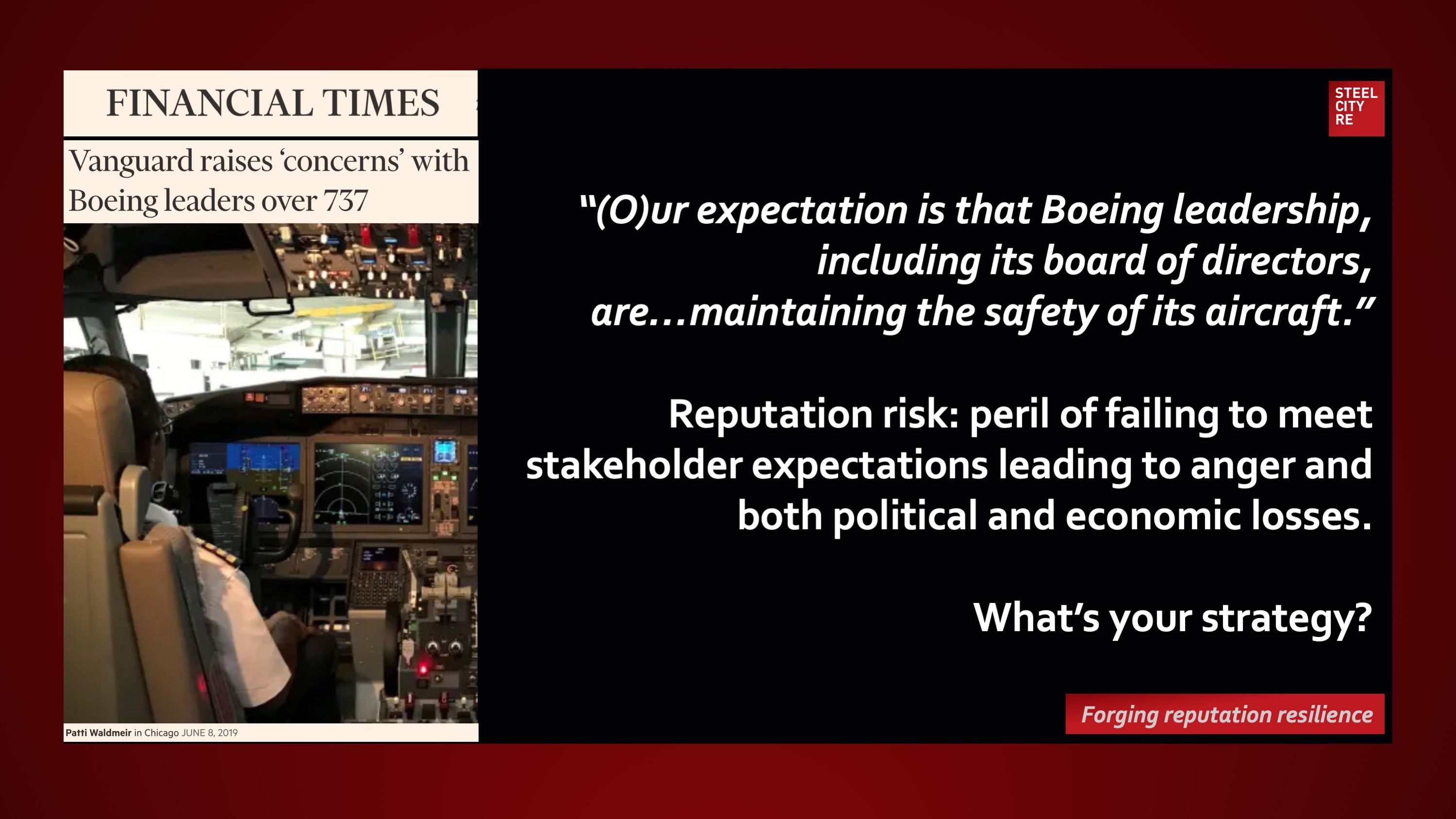“Vanguard has raised concerns with Boeing’s management over its handling of the grounded 737 Max, saying its fund managers have become “very concerned” by reports of oversight failures in the wake of the aircraft’s two crashes. The issues raised by Vanguard, which is Boeing’s largest shareholder with a 7.1 per cent stake, were included in a letter from the investment group’s top company engagement official.”
Financial Times
June 11, 2019
“(O)ur expectation is that Boeing leadership, including its board of directors, are…maintaining the safety of its aircraft.”
Reputation risk is the peril of failing to meet stakeholder expectations leading to anger and both political and economic losses.
For a broader view of reputation risk, discover additional articles by Steel City Re here, mentions of Steel City Re here, and comments on newsworthy topics by Steel City Re here. To read an abstracted summary of reputation risk, see below.
Reputations are valuable strategic intangible assets. Threats to these assets⏤ enterprise reputation risks, often mislabeled “brand risks” ⏤ need to be managed, and management needs to be overseen through reputation risk governance lest reputational damage or reputational harm result in long-tailed go-forward losses in economic value and/or political power. Because these intangible risks arise from the interplay of stakeholder expectation, experiences, and media amplification, parametric insurances for intangible asset risks, for reputational value, for reputational harm, and for reputation assurance help mitigate risk by telling a simple, convincing and completely credible story of quality reputation governance to stakeholders. This story telling effect is the expressive power of insurance complementing insurance’s better known instrumental power of indemnification.
Risk management, risk financing in insurance captives, and risk transfer through reputation insurances comprise the constituent elements of a comprehensive solution.
What’s your strategy?

